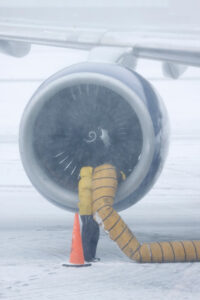Prioritize your mental health without jeopardizing your pilot medical or career
It’s no secret that many individuals struggle with mental health concerns, including pilots. However, the fear of jeopardizing their pilot medical has prevented many from seeking help. Thankfully, the FAA is addressing this issue.
Currently, pilots face significant consequences for simply participating in talk therapy to address anxiety or depression. The FAA grounds them temporarily and requires additional testing and evaluations before allowing them to fly again, resulting in prolonged recovery periods and financial strain.
Fortunately, the FAA is recognizing that not every reported mental concern indicates an immediate risk during a flight. Sometimes, pilots just need assistance with everyday issues that the rest of the world can discuss with therapists.
To improve the process, the FAA is revising its procedures for pilots seeking to regain their licenses after reporting mental health issues. They are also updating certification protocols to encourage pilots to seek help when needed. Additionally, the FAA aims to dispel misconceptions about the impact of mental health concerns on pilot certificates.
Currently, mental health components are present in 30-40% of pilot medical applications, but less than 0.2% are denied licensing or recertification due to medical concerns. While this statistic is somewhat reassuring, the FAA acknowledges the need for improvement.
In a positive step forward, the FAA has already approved four antidepressant medications known as SSRI and is on the verge of approving seven more. These approved medications have proven effective for pilots already taking them, and more options will likely be available soon.
Reducing the wait time for pilots to regain their medical certifications is another priority for the FAA. They have recently hired an additional psychiatrist to review applications and expedite the return of pilots to the skies.
Mental Health and Pilots
While the FAA is making it easier for pilots who feel safe to fly to fly, mental health is crucial for the following reasons:
- Decision Making: Good mental health allows pilots to make clear, rational decisions in high-pressure situations.
- Stress Management: Flying can be stressful. Pilots with good mental health are better equipped to manage stress effectively, reducing the risk of panic or poor decision-making.
- Alertness: Mental health problems can lead to fatigue and reduced alertness, which can compromise safety.
- Communication: Good mental health helps facilitate effective communication with air traffic control, crew members, and passengers.
- Adherence to Procedures: Pilots with good mental health are more likely to adhere strictly to safety procedures and protocols.
- Response to Emergencies: In an emergency, pilots need to remain calm and focused. Good mental health can help ensure an appropriate response in such situations.
- Physical Health: There’s a strong link between mental and physical health. Poor mental health can lead to physical health problems and vice versa.
- Long-Term Career Sustainability: Maintaining good mental health can help ensure a long, successful career in aviation.
- Passenger Trust: Passengers entrust their lives to the pilot. Knowing that the pilot is in good mental health can enhance passenger confidence and comfort.
- Regulatory Compliance: Many aviation authorities require pilots to undergo regular mental health assessments as part of their licensing requirements. Maintaining good mental health ensures compliance with these regulations.
It is imperative for all professionals, especially those in safety-related fields like aviation, to address the realities of mental health. The FAA’s commitment to promoting a culture where anyone can ask for and receive help without causing harm to their livelihood is commendable.
Overall, the FAA’s efforts to support pilots’ mental health and improve the process are commendable. The aviation community can now rest assured that seeking assistance will not come at the cost of their careers.
RELATED CTS TRAINING









